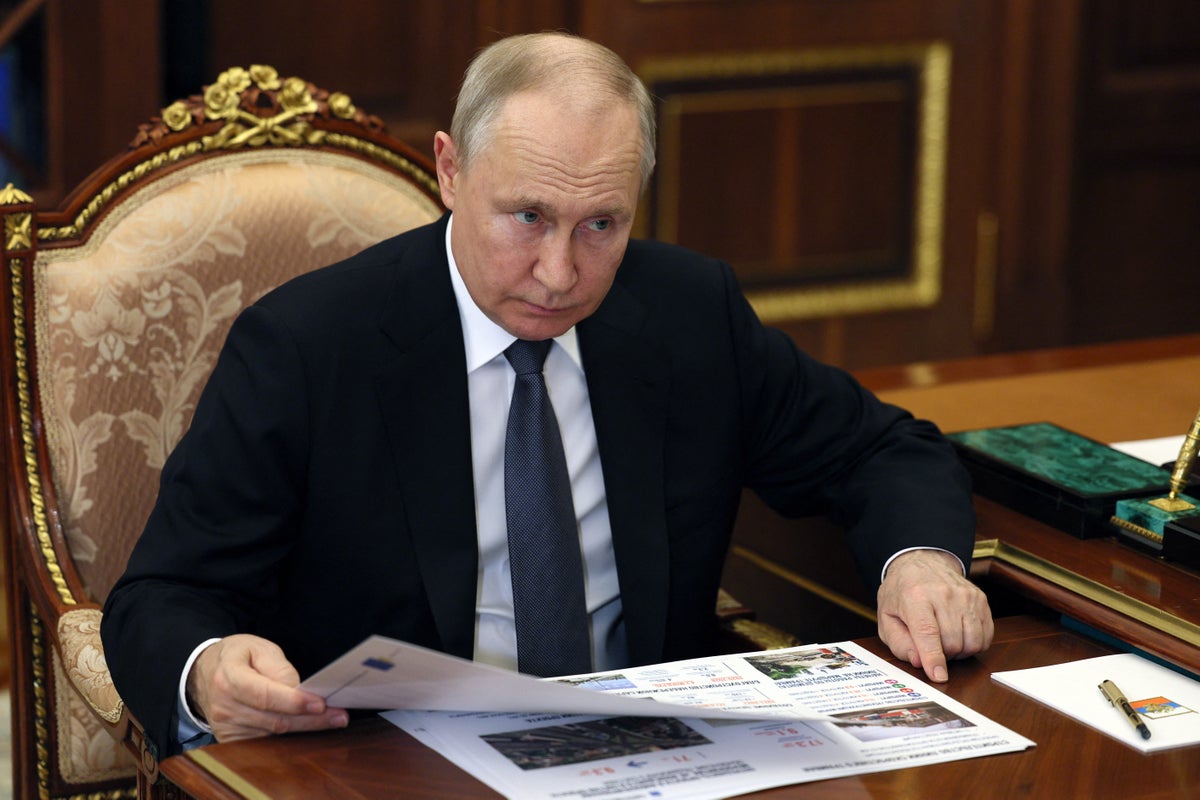
Vladimir Putin will not attend a summit in South Africa next month – allowing the hosts to avoid a decision whether or not to arrest the Russian leader thanks to an international warrant over war crime allegations.
As a signatory to the International Criminal Court (ICC) which issued the warrant, South Africa would be expected to detain Mr Putin once he sets foot in the country. Although it has refused to honour that obligation in the past, allowing safe passage to Sudan’s then-president Omar al-Bashir in 2015, who was facing allegations of war crimes against his own people.
The ICC issued an arrest warrant for Mr Putin and Russia’s commissioner for children’s rights Maria Lvova-Belova in March in relation to the forced deportation of children from Ukraine to Russia.
The announcement that Mr Putin will stay away from the two-day summit in August comes a day after court documents showed South Africa’s president Cyril Ramaphosa had sought permission from the ICC not to follow through with the arrest, saying it would amount to a “declaration of war”. South Africa’s largest opposition party, Democratic Alliance, had gone to court to try and compel authorities to carry out the arrest if Mr Putin arrived, but Mr Ramaphosa appeared dead set against the move.
“South Africa has obvious problems with executing a request to arrest and surrender President Putin,” he said in an affidavit filed in late June but made public on Tuesday. “Russia has made it clear that arresting its sitting president would be a declaration of war. It would be inconsistent with our constitution to risk engaging in war with Russia.”
South African president Cyril Ramaphosa— (AP)
On Wednesday, a statement from South Africa’s presidency said that by “mutual agreement” Russia would be represented by its foreign minister, Sergei Lavrov, at the summit of Brics nations – Brazil, China, India, Russia and South Africa. The Russian state RIA news agency later said, citing the Kremlin, that Mr Putin will take part in the summit via video call.
Speaking just before the announcement by South Africa, the Kremlin’s spokesperson, Dmitri Peskov, told reporters that everyone understood – without having it explained to them – what an attempt to infringe on Mr Putin’s rights would mean. But he said that Russia did not tell South Africa that an arrest would mean war. The Kremlin has called the warrant issued against Mr Putin outrageous and legally void, because the country is not a member of the organisation.
“No, no such formulations were uttered, no one gave anyone to understand that,” Mr Peskov said. “It is clear to everyone in this world what an attempt to infringe on the rights of the head of the Russian State means. So there is no need to explain anything to anyone here.”
South Africa has been trying to deal with the issue of the arrest for months. It sees Russia has an ally, but clearly does not want to inflame tensions with Western nations either. South Africa has consistently abstained from voting at the United Nations to condemn Russia’s aggression, calling instead for dialogue to end the war. Claiming neutrality, the country is also part of efforts by a group of at least six African nations who recently embarked on a peace mission to Kyiv and Moscow to meet with both Mr Putin and Ukrainian president Volodymyr Zelensky.
In his court submission, Mr Ramaphosa suggested such efforts might be jeopardised by an attempt to arrest Russia’s president. “An arrest of President Putin would introduce a new complication that would foreclose any peaceful solution,” he said.
Reuters and Associated Press contributed to this report







